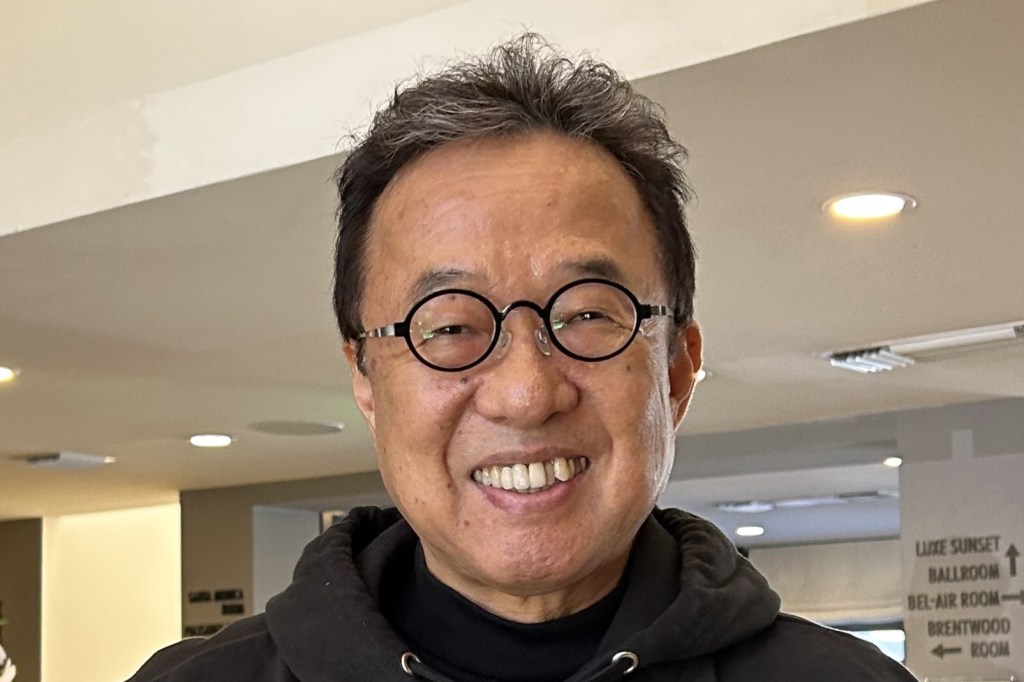One Piece executive producer Tetsu Fujimura mapped out the massive growth of Japanese IP in a TIFFCOM keynote today, advising that while many of the big properties may already be licensed, attention is shifting to the next tier where there’s huge potential.
In an eye-opening presentation, Fujimura – the former Gaga Communications founder and president who now heads consulting firm Filosophia – said the share of IP-based films in the global Top 30 box office has soared from just 10-20% three decades ago to nearly 90% in 2024.
Many of these movies are based on Japanese manga, anime and games, which have been popular for decades, but seen their global recognition supercharged by streaming. “Japanese IPs including Pokemon, Hello Kitty and Super Mario Bros are in the top ten biggest in the world in revenue terms,” said Fujimura. “No other country has so many famous IPs.”
He then reeled off an impressive list of Japanese properties that have become global hit movies from Godzilla, Sonic The Hedgehog and Super Mario Bros to Pikachu and Resident Evil.
In 2024, two films in the worldwide top ten, Godzilla x Kong: The New Empire and Sonic The Hedgehog 3, were adapted from Japanese IP. This year, the worldwide top ten includes original Japanese anime Demon Slayer: Kimetsu no Yaiba – The Movie: Infinity Castle, currently ranking fifth overall with $666M.
Fujimura explained how all of this is being underpinned by Japan’s booming manga, amine and games industries: the manga market doubled form $9.9BN in 2020 to $18BN in 2025 and will double again by 2030. The anime market reached revenues of $34BN in 2024 up from $31BN previous year, while Sony Interactive Entertainment is the world’s biggest games company with revenues of $31.7BN, ahead of China’s Tencent with $27.3BN.
Bridging Japan and Hollywood
A founder and former president of Japan’s Gaga Communications, Fujimura left the company and launched Filosophia in 2006 as a consulting firm to bridge the Hollywood and Japanese content industries.
One of his first projects was working with Avi Arad on securing rights for the 2017 live-action remake of iconic anime The Ghost In The Shell. He then worked with Marty Adelstein’s Tomorrow Studios on Netflix series One Piece, describing it as the first manga-based live-action global hit series – racking up 54 million views and 410 million hours watched since it dropped on the streamer in 2023.
“We introduced Marty to [manga publisher] Shueisha and made proposals on the finances and the creative vision. It took about two or three years to put together. Eiichiro Oda, author of the original One Piece manga, was also involved in the creative vision.”
Fujimura also explained the historical reasons for why Japanese IP is so strong – starting with the periodical manga magazines that became popular in the 1950s, evolving into the anime business that boomed with the growth of Japan’s animation studios and TV networks in the 1960s.
“Then the global streamers – Netflix, Prime Video and Crunchyroll – boosted anime and manga popularity until we reached the stage that can truly be called the era of global IP. It’s difficult to find another industry with this kind of growth projection.”
And there’s plenty more coming. Fujimura said he’s counted around 65 pieces of Japanese IP that are currently in development with Hollywood studios and streamers.
These include films based on manga (Astro Boy, Gantz and One Punch Man with Sony, Naruto with Lionsgate and Attack On Titan with Warner Bros); films based on anime (Your Name with Paramount and Mobile Suit Gundam with Legendary); and films based on games (Legend Of Zelda with Sony, Street Fighter with Paramount). And that’s just the films – several major series based on Japanese IP are also in development.
“Not all of them will get made or become hits,” said Fujimura. “The screenplay needs to be strong and only one in several works will be realised. It’s a survival game, but then if it doesn’t work at one point, somebody might try again later.”
He also acknowledged that with so many projects in development, “most of the major IPs have already been secured, but attention is starting to shift toward the next tier. These are titles that might not be as well known yet, but they’ve got incredible potential, and the scope is widening.”
“We’re seeing momentum across novels, light novels [YA fiction] and independent games,” he continued, using the example of recent Japanese hit movie Exit 8, adapted from an indie game. “This means more opportunities are opening.”
Putting all this into context for the wider Japanese economy, Fujimura also pointed out that the combined market capitalization of Japan’s top nine entertainment companies has now surpassed that of the top nine automakers.
“Entertainment is emerging as Japan’s next key industry with Japanese IP at its core. Sony is rapidly closing in on Disney in terms of market cap, and its strategy is driven by IP as its main source of profit. Sony CEO Hiroki Totoki recently ruled out making a play for Warner Bros, saying that he’d rather focus on the global market for Japanese IP.”
The post ‘One Piece’ Executive Producer Tetsu Fujimura On Japanese IP: “Most Major Properties Are Already Secured But The Next Tier Has Huge Potential” appeared first on Deadline.




